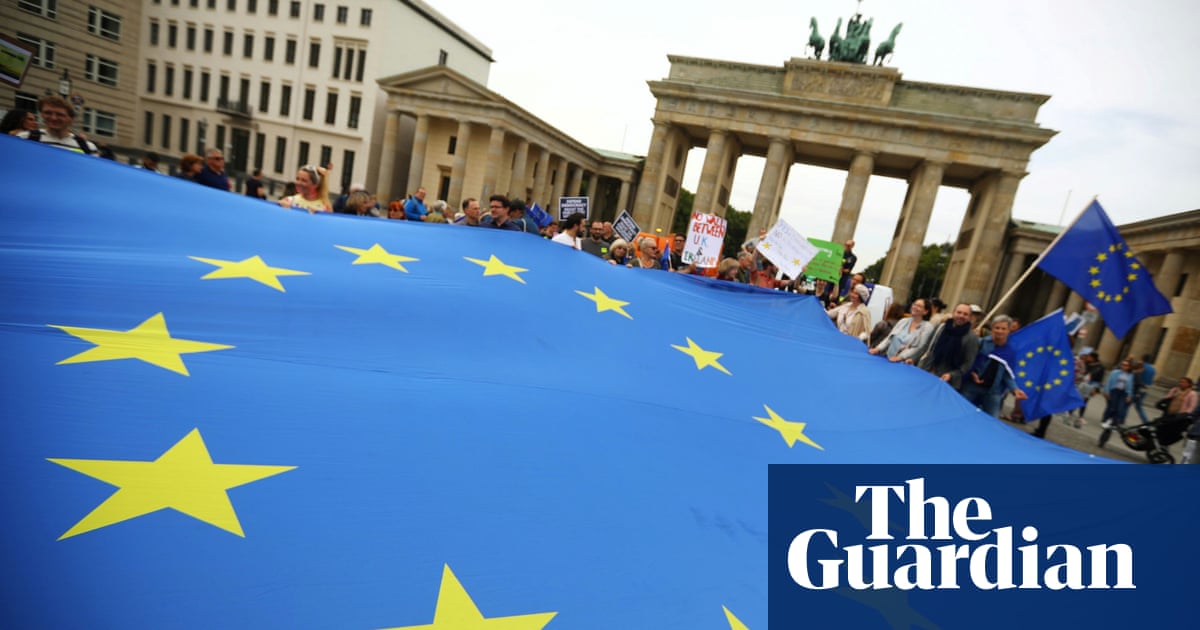
o one expects a joyous new year in 2021. Covid-19 will ensure that. Yet news that a collision between the pandemic and Brexit may also see Britons barred from entering the European Union for nonessential travel from 1 January has now added to the misery.
As things now stand, EU rules that ask member states to ban citizens of high-risk Covid countries from entering should be applied to UK citizens when Big Ben stops chiming 11pm (marking midnight in Brussels). This might change by then, or not. But why the surprise?
The idea that ending “freedom of movement” simply prevented a one-way traffic of Polish plumbers and Romanian fruit pickers into Britain was always absurd.
From the very beginning, Theresa May made “reciprocity” the mantra of Brexit negotiations. If Britain “cracks down” – to use a term favoured by migrant-bashers – on the travel freedoms of European citizens then British people must pay a price too.
“It’s a two-way thing. We’ve always warned about that,” said Jane Golding, the Berlin-based co-chair of the British in Europe group.
This is now dawning on those who make occasional trips to the EU – meaning much of the UK population.
The new reality is this: travel to France is not an absolute right. Nor are trips to Spain, Greece, most of Europe’s best resorts, or anywhere else British people love to go in the EU. Among many other things, that is what losing European citizenship means.
Tourism must now take place under different conditions. That does not make them impossible, or even difficult. But it does mean they can be stopped at any moment. Covid is one of those moments.
Everywhere, there is a pecking order among those who enjoy freedoms, with citizens at the top. This is a principle the UK loves to apply, as the Windrush generation, or the 3 million EU citizens in Britain forced to fill out a settled status form, know full well.
Brexit, then, always meant curtailing the rights and freedoms of Britons in Europe. The surprise is that some people are only just waking up this. Perhaps no one bothered to tell them.
More “surprises” await. Britons may yet have to buy health insurance every time they travel, adding considerably to the expense of a family holiday. They will definitely pay €7 per person for travel authorisation under the European Travel Authorisation and Information System (ETIAS) as of late in 2022.
Since Brexit has been wrapped and sold in grand terms, the minutiae of real, everyday disruption – the part that impacts ordinary lives – has been ignored.
So-called swallows, British owners of second homes in Spain, France or elsewhere, must now leave after three months and not return for another three. “Some people still think they can just pop across the border to Gibraltar and come straight back,” explained Anne Hernandez, who runs a group helping British immigrants living on the Costa del Sol. “Other people are asking whether it is worth it, or if they should just sell up,” she added.
Worries about the validity of health cards and the expense of health insurance add to the burden. Hernandez has just helped someone install a 90-year-old relative from the United States in their Spanish home. Insurance costs are €600 a month.
For the 1.2 million UK citizens who live in the European Union, the damage likely to be caused by loss of citizenship became obvious – and deeply worrying – four years ago.
When some of us started to organise and lobby through British in Europe, it was telling that Michel Barnier’s door was immediately open. Entering the Brexit ministry was far more difficult.
We were told that the British government was determined to protect us. In fact, freedom of movement restrictions mean many low-earning UK migrants to the EU can never now return home with their families because they are not rich enough to meet the government’s new criteria for bringing back “foreign” spouses. They may eventually be forced into choosing between caring for an elderly parent or living with their own partner and children.
Other UK citizens in Europe are now desperately trying to gain the qualifications that will allow them to continue exercising their professions, fretting about whether they can continue trading or offering their services across borders, or have already had UK bank accounts closed down.
A wider inability to see migration as anything but a one-way process that threatens the British way of life ignores fundamental truths about Britons as migrants.
In fact, 5 million British people – or 8% of us – live elsewhere. In percentage terms, Britain is the world’s 10th biggest exporter of emigrants and the largest in the European Union. Some 350,000 British people live in Spain. They are the third largest immigrant community, after Moroccans and Romanians. The UK’s head-in-the-ground attitude to emigrants, however, means it cannot be counted on to help or protect them.
The truth is that Spain needs British tourists. Its economy is 12% dependent on tourism, and in provinces such as Alicante, much of that comes from Britain. A fifth of its annual visitors hold UK passports.
Spain will bend over backwards to let British visitors in and to treat them well. It is worth remembering, though, that it can only bend as far as any EU-UK agreement allows it to. Or Covid restrictions.
There is also a sting in the tail. Before the EU introduced express extraditions, Spain’s Mediterranean coast was also known as the Costa del Crime, since British crooks loved to hole up there. As of 1 January, when extradition becomes more complex, that part of British migration is quite likely to pick up again.
Giles Tremlett is a correspondent based in Spain. He is the author of Ghosts of Spain, and biographies of Catherine of Aragon and Isabella of Castile












